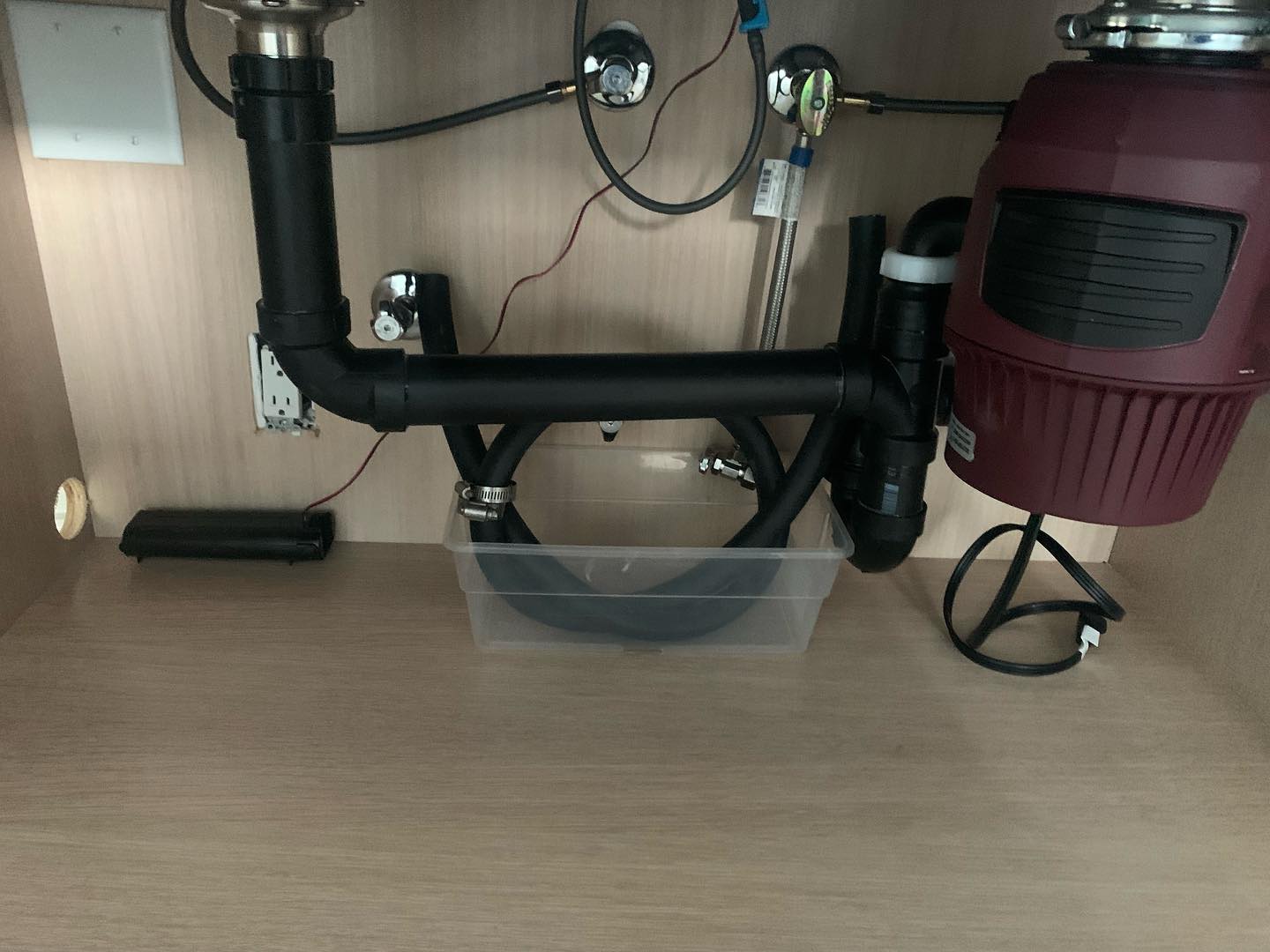Key points
• Septic-Safe Disposal: When selecting a garbage disposal for a septic system, it’s crucial to choose a model designed to be septic-safe, which typically includes features to grind waste finely enough to avoid disrupting the septic tank’s balance.
• Regular Maintenance: Regular maintenance of both the septic system and the garbage disposal is essential to prevent clogs and backups. Homeowners should schedule professional inspections and pumping of the septic tank, as recommended by local guidelines.
• Limitations on Usage: Homeowners should be aware of the limitations when using a garbage disposal with a septic system, including avoiding the disposal of non-biodegradable materials and reducing the overall amount of food waste put down the disposal to prevent overloading the system.
Contents
- 1 Key points
- 2 Increased Solids in Septic Tanks
- 3 Potential for System Overload
- 4 Effects on Septic Tank Bacteria
- 5 Signs of Garbage Disposal Impact on the System
- 6 Remedial Actions for Garbage Disposal-Related Issues
- 7 Local Regulations Regarding Septic Systems and Garbage Disposals
- 8 Frequently Asked Questions (FAQ)
The Role of Garbage Disposals in Septic Systems
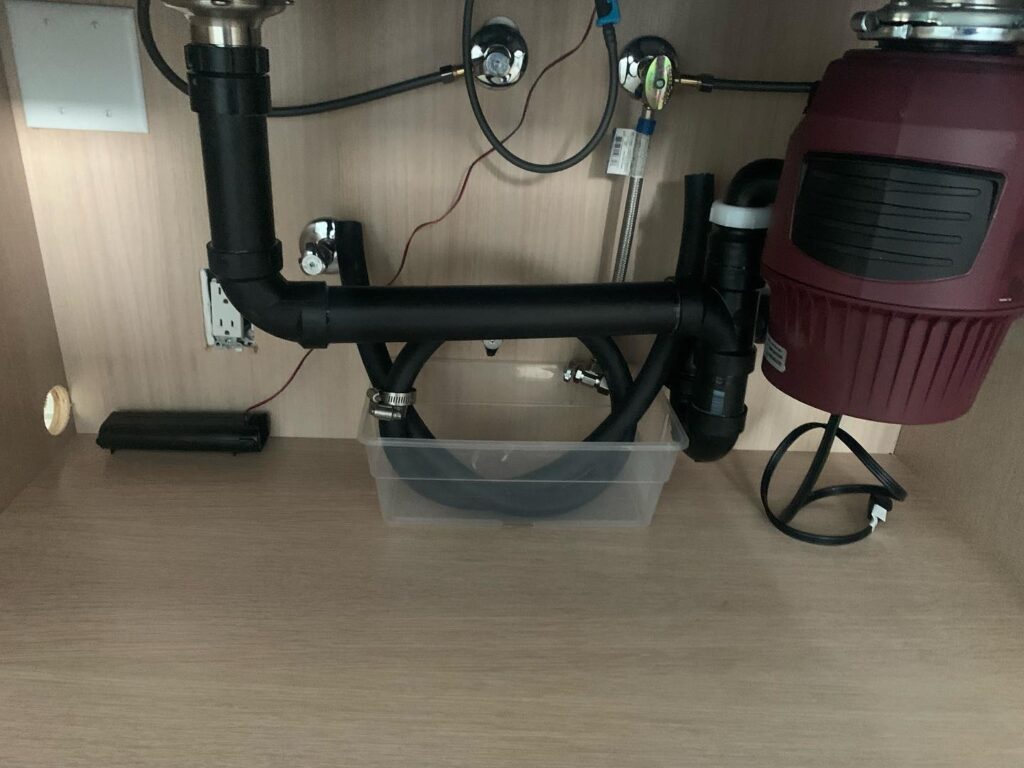
Incorporating a garbage disposal into your kitchen sink can complicate things a bit for your septic system – but it’s nothing it can’t handle if you use it wisely. The device chops up food scraps into smaller bits so they seamlessly go down the drain, joining other wastes en route to the septic tank. Nevertheless, overusing or feeding it with the incorrect sorts of leftovers can lead to an accumulation of solids in your tank—meaning more frequent pumping and potential blockages.
Importance of Proper Usage
Now here’s the crux: Taking care of your septic system is pretty crucial—it’s not only about preventing a foul mess but also about safeguarding your wallet from costly repairs and being kind to Mother Nature. You’ll want to avoid treating your garbage disposal like a food incinerator; toss major scraps into the trash or compost pile instead, and reserve its use for minor residues that rinse off dishes. A dash of common sense goes a long way here—don’t dump grease down there (it’s asking for trouble!), limit the use of harsh chemicals that could disrupt your system’s harmony, and for Pete’s sake, remember that ‘flushable’ wipes are usually anything but.
Certainly, balancing act isn’t always easy-peasy, but getting comfy with best practices ensures your septic system works smoothly for years to come—without missing a beat. Keep an ear out for odd noises or unwelcome smells that might signal problems on the horizon. Essentially, treat your septic system like any valuable asset: with diligent care and attention.
Increased Solids in Septic Tanks
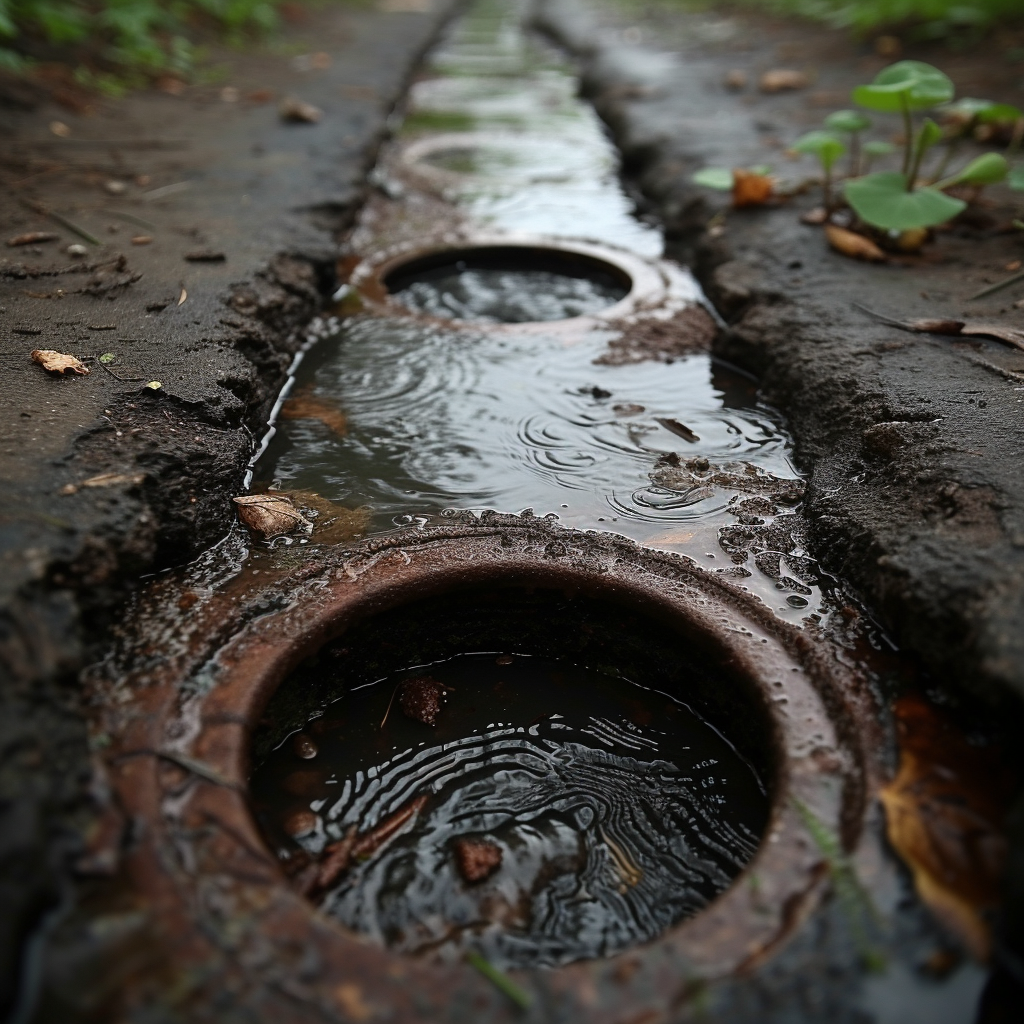
When a garbage disposal feeds waste into a septic system, there’s an uptick in solid materials finding their way into the septic tank. These solids can add up quickly, amassing at a rate faster than the tank’s capacity to break them down. Over time, the accumulating solids boost the need for more frequent pumping intervals, which isn’t exactly pocketbook-friendly.
Potential for System Overload
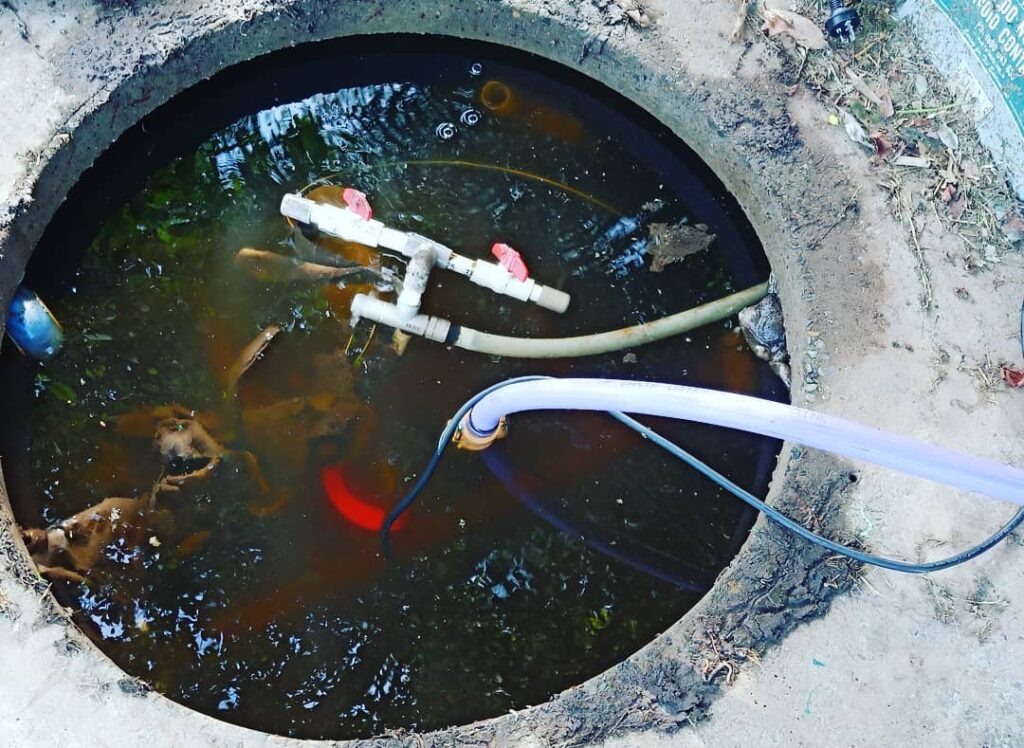
Piling on waste with reckless abandon? Hold your horses! Your septic system has its limits and pushing it too hard with excess food scraps can lead to saturation of the drain field, otherwise known as ‘hydraulic overload’. This is what happens when the water coming out of your house gets to be a bit too much for your system to handle.
Effects on Septic Tank Bacteria
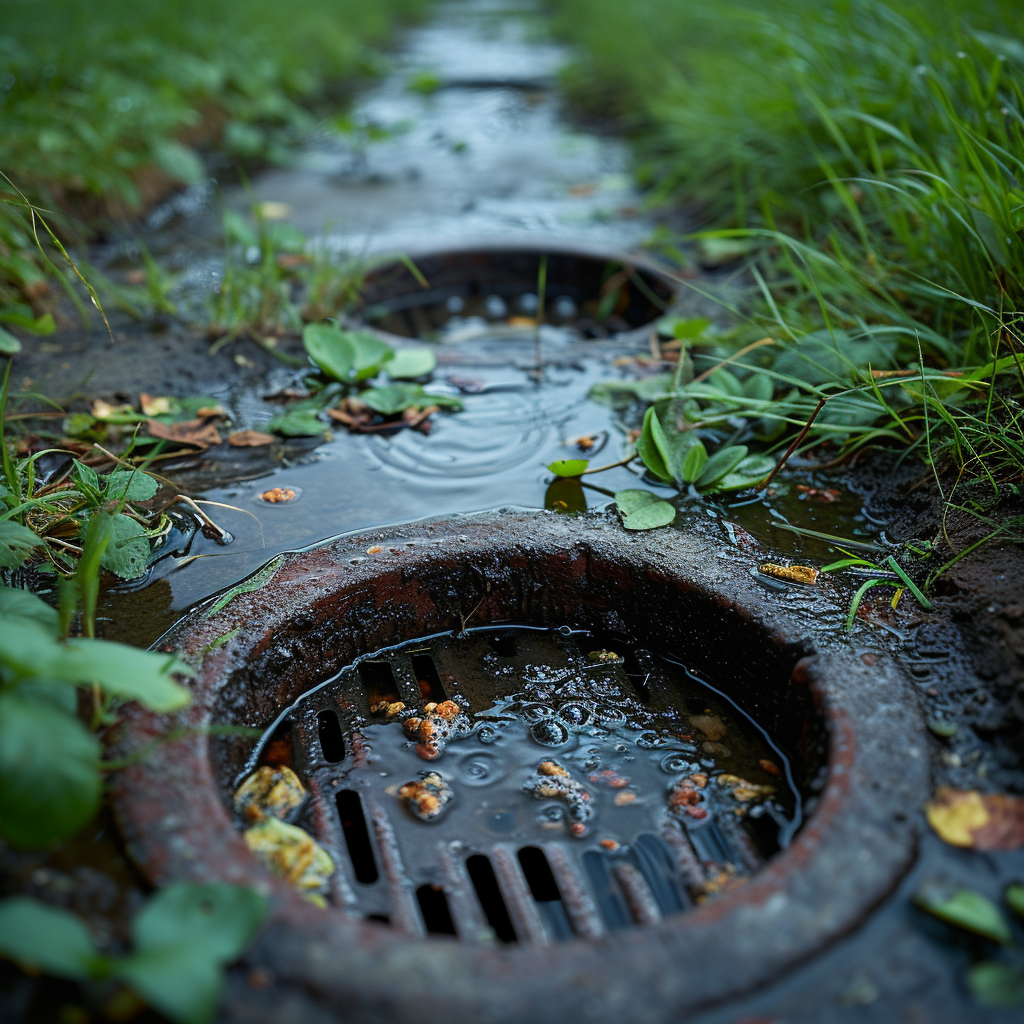
The mighty microbe! It’s small but packs quite a punch in digesting and treating waste within your septic tank. However, introducing food remnants from garbage disposals can tip the scales against these bacteria buddies. The disruption isn’t just about volume; certain foods fundamentally alter the environment inside the tank — sometimes by making it more acidic or even oxygen-deprived — which isn’t exactly what these helpful bacteria enjoy. To cut to the chase: for bacteria working 24/7, maintaining that Goldilocks ‘just-right’ environment is key.
When it comes to maintaining a septic system, a bit of know-how goes a long way. Let’s dive into some savvy strategies for garbage disposal use that’ll help your system stay in tip-top condition.
Types of Waste to Avoid
Keeping certain items outta your disposal is crucial since they can wreak havoc on your septic system. Steer clear of:
- Coffee grounds—they’re like tiny culprits that accumulate and cause blockages.
- Fats, oils, and greases (FOG)—these are notorious for solidifying and creating clogs.
- Eggshells—despite common belief, they don’t do your septic system any favors.
- Pasta, rice, and fibrous veggies—since these swell or are tough to break down, they’re a real no-go.
Recommended Waste Disposal Habits
Honing the right garbage disposal habits isn’t just smart—it’s practically a superpower for your septic system’s longevity. Here are a few tips to live by:
- Limited grinding: Go easy on the grinding. Save the heavy lifting for composting or trash collection instead.
- Stagger waste introduction: Don’t overwhelm the system; introduce waste gradually.
- Cold water flush: Give it a good flush with cold water—this helps fat move along without sticking around.
Remember, when in doubt, it’s better to toss it out…the traditional way!
Maintenance Tips for Garbage Disposals
Your garbage disposal needs love too—a little TLC can keep it running without a hitch. Keep these nuggets of wisdom in mind:
- Clean regularly: A dash of dish soap and cold water during routine use will help keep odors at bay and reduce potential buildup.
- Safety first: Always ensure power is off before performing any maintenance
- Professional inspections: Get your setup inspected occasionally to catch any issues before they escalate.
In short, treat your garbage disposal like an ally in your septic system’s health. A careful battle plan filled with wise habits and maintenance rituals ensures this dynamic duo works together seamlessly!
The Benefits of Reducing Garbage Disposal Use
Cutting down on the use of in-sink garbage disposals might seem like a small step, but it’s one that packs a punch for septic system health. When we lessen what goes down the drain, it prevents unnecessary strain on our septic systems, staving off clogs, back-ups and other unpleasantries. Not only does this reduction save us from potential headaches—it also extends the lifespan of our septic systems significantly.
Furthermore, adopting a ‘less is more’ attitude in using garbage disposals indirectly cuts down on water usage—a win for your utility bill and crucial water conservation efforts. The rationale here is straightforward: less waste to grind means less water needed to flush it through. Plus, by steering clear from mechanically pulverizing waste foodstuff, we’re ensuring that our septic systems aren’t bogged down with excess solids—protecting delicate ecological balances within our backyard ecosystems.
Remember, a little effort goes a long way in maintaining a functional, sustainable home waste system. While we’ve touched upon merely two facets here—composting as an ace up your sleeve for waste diversion and minimizing garbage disposal use—these actions contribute hugely to environmental conservation and septic system integrity. So embrace these shifts in household habits; they’re truly no-brainers when it comes to practical home management.
Signs of Garbage Disposal Impact on the System
Now, tossing leftovers down the garbage disposal might seem harmless, but over time it can pack a punch to your septic system. Some red flags indicating that your garbage disposal might be stressing out your septic tank include slow drains, not-so-pleasant odours escaping from the drain, sewage backup in the house, lush grass over the drain field or standing water. If you’re noticing these signs, chances are your disposal is contributing more than just convenience—it’s adding extra solids to your tank which can lead to blockages or overload.
Remedial Actions for Garbage Disposal-Related Issues
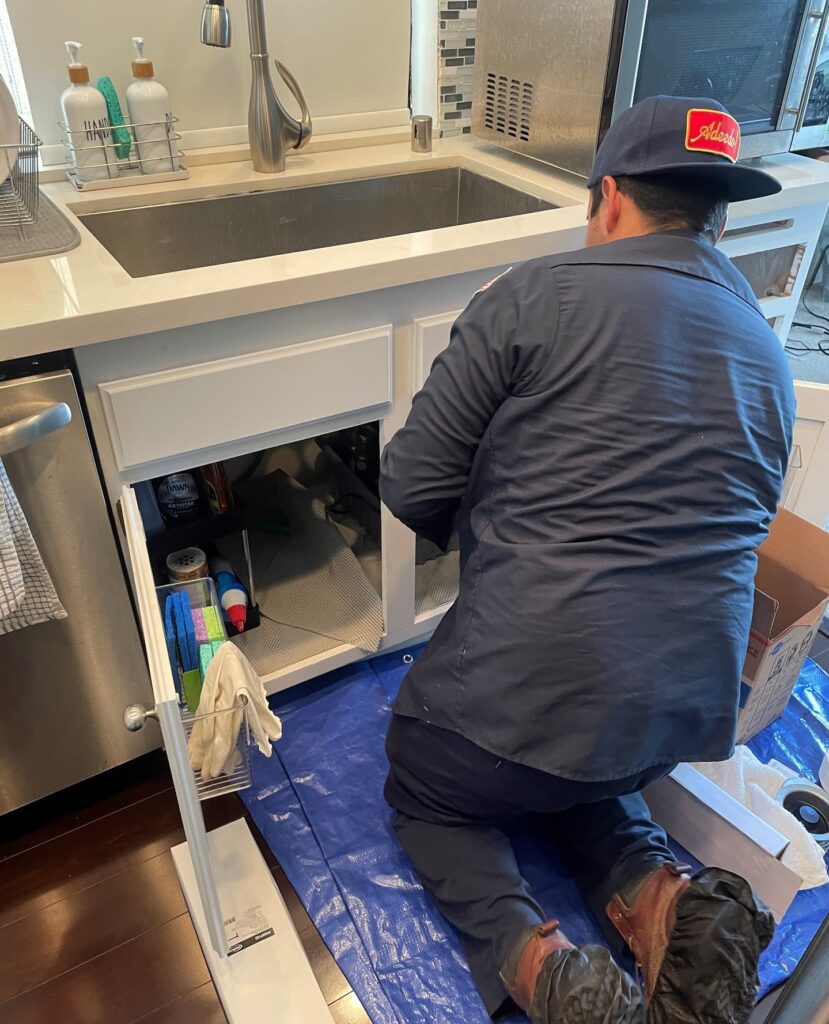
To nip these garbage disposal-related woes in the bud, there are a few things you can do. For starters, lay off feeding it like it’s never full—moderation’s key. Cutting down on how much and what types of waste you put through will make a difference (think easy-to-decompose organic material). Add bacteria additives to help break down waste naturally if needed. It’s also a smart move to divert other forms of waste away from your septic system; composting is a great alternative for disposing organic waste while being eco-friendly too!
Folks, remember that keeping your garbage disposal use to a minimum goes hand in hand with maintaining a happy septic system – after all, less is often more! And let’s not forget: when in doubt, consult with a professional who knows their way around septic systems. They’ll provide guidance tailored specifically to your situation.
Clogs and Backups
First off, clogged or backed up disposals can be a real pain. It’s usually down to cramming in too much stuff – think fibrous materials or big chunks that don’t grind easily. An initial step is to turn it off and give it a look (don’t be daring now – cut the power first!). If you spot a blockage, you may need to grab some tongs and carefully remove it. Still not grinding properly? It’s time to check the P-trap under the sink. This often holds uninvited debris. Clear out that funk and water should flow smoothly once more.
Odor Issues
Moving on, a stinky sink can sour your mood faster than milk left out overnight. Odors typically come from build-up of food scraps sitting idly in your disposal. Run cold water down the drain for about 20 seconds before switching on the disposal – this helps flush things through. Follow it up with some DIY deodorizing: consider tossing a little lemon peel or baking soda down there for an immediate face-lift in freshness!
Garbage Disposal Performance
Your disposal’s performance level might drop over time. It’s basic wear and tear talking here, but that doesn’t mean you have to put up with it. A dull blade could be the culprit.
There are sharpening tricks like grinding ice cubes or rock salt that can help bring back that edge – literally. Lastly, remember these systems have their limits; stay sharp by avoiding non-food items and keeping greasy offenders out of those pipes!
Sustainable Garbage Disposal Practices
When dealing with waste disposal like a pro, here’s a handy hint: treat your septic system like a delicate piece of machinery rather than a trash compactor. Here’s what you should bear in mind:
- Non-biodegradables: These guys are a strict no-no for flushing as they’ll settle cosily in the tank and never break down.
- Fats, Oils, Grease (FOG): Pouring these down the drain might seem harmless enough but trust me – they’ll coat your pipes faster than you can say “plumber’s nightmare” causing clogs and overflows.
- Hazardous Chemicals: Paints, solvents or pesticides might not seem like a biggie at first glance but they surely contaminate soil and waterways.
- Excessive Water Use: Attacking this head-on by using high-efficiency fixtures or simply being mindful about consumption means less strain on your system – which is always good news!
The golden rule? If you’re even slightly doubtful about whether something should be chucked in the trash or sent down the pipes—opt for the bin every time. After all sustainable practices aren’t just good karma – they’re essential for keeping things ticking over nicely.
Local Regulations Regarding Septic Systems and Garbage Disposals
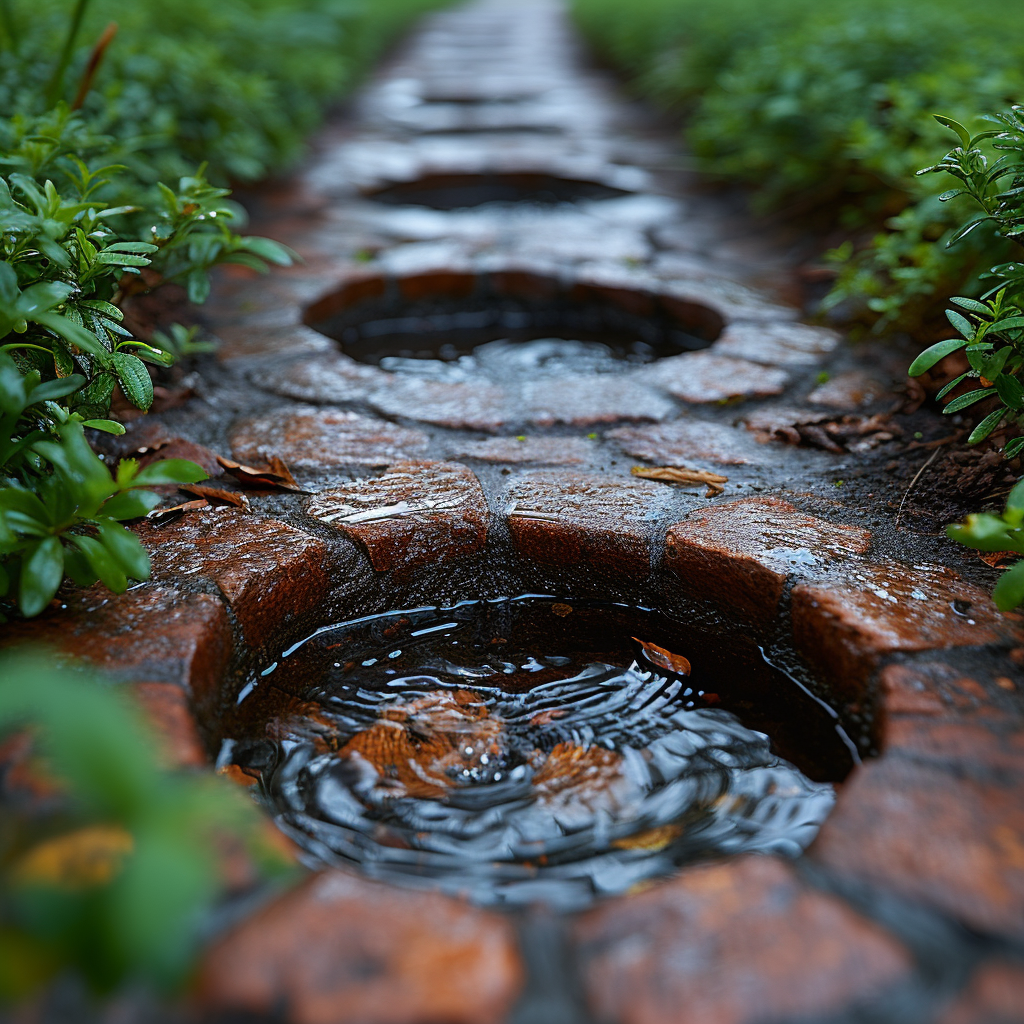
When it comes to keeping your septic system running smoothly, understanding the lay of the land – in this case, local regulations – is key. Different municipalities may have their own set of rules that clarify what you can and can’t do. It’s a tad bit like following a unique recipe for each area, with ingredients being permits, guidelines for maintenance, restrictions on what should never end up down the drain, and specifications regarding garbage disposals which might be linked to septic systems. Why does this matter? Well, some regions are strict and say no-no to garbage disposals altogether if you’ve got a septic system; they’re seen as potential troublemakers shaking up the delicate balance within your tank.
Compliance with Environmental Standards
These standards ensure that septic systems don’t contribute to pollution or harm natural resources. We’re talking about making sure that waste is treated properly before being released into the ground so it doesn’t mess up groundwater or local ecosystems. Sticking to these standards isn’t just about dodging penalties; it’s about doing your bit for our planet and ensuring we all play fair.
Preserving these efforts often falls on oversight organizations who have an eagle-eyed focus on environmental impact assessments and issuing certifications for septic systems that make the grade. To stay in the know, one must stay vigilant in regularly checking with local authorities to make sure their system is compliant and operating at its best – sort of like how you’d ensure a well-oiled machine is humming along without a glitch.
In short: keep abreast of your town’s rulebook, cross your t’s and dot those i’s when it comes to environmental compliance. A touch of effort now saves a mountain of woes later.
Frequently Asked Questions (FAQ)
How can a homeowner maintain their septic tank's leach field when using a garbage disposal?
To maintain the leach field, a septic system owner should minimize the amount of solids from the garbage disposal entering the tank and ensure regular maintenance, such as cleaning filters and avoiding the introduction of harmful chemicals that can disrupt soil absorption.
What's an early indicator that a septic system is struggling due to garbage disposal use?
A tell-tale sign would be water pooling around the drainfield or lush grass over the area, suggesting potential clogging within the system, often caused by excessive waste from garbage disposals.
Can chemicals from household products harm my septic system and its surrounding components like the leaching pit?
Absolutely. Certain household chemicals can impair the bacteria within your tank and disrupt the operation in your seepage pit and leaching pit, leading to costly repairs or replacements for homeowners.
What should be considered before installing a new garbage disposal in a home with a drywell system?
Before adding one, it’s wise for homeowners to assess waste capacity of their drywell, local guidelines, and potential additional maintenance effort and expense that comes with utilizing a garbage disposal.
Is it advisable for Mr. Rooter Plumbing services to frequently inspect septic systems involving drip distribution technology?
Indeed, it is crucial. Regular inspection by services like Mr. Rooter Plumbing ensures that drip distribution systems linked to septic tanks and garbage disposals operate flawlessly and address any issues proactively.
What role does Septic Drainer play in managing problems from garbage disposals in residential wastewater systems?
Septic Drainer can assist in remedying sluggish drainage fields caused by grease and other substances introduced by garbage disposals, thus preventing backups into homes’ wastewater systems.
How relevant is the location of my septic tank effluent drain field when I use my kitchen sink disposal unit?
‘Location is key,’ as they say – ensure your septic tank effluent drain field is at an adequate distance from your kitchen waste output to prevent direct contamination.
'Why do septic experts often suggest limiting food scraps processed through garbage disposals?'
‘Every little bit counts.’ Reducing food scraps lessens your septic tank’s load, which cuts down on necessary pumping frequency and potential drainage field issues.
Does Forbes Home recommend specific models of garbage disposals for homes utilizing well-based sewer systems?
Certainly; Forbes Home may advocate for models with SoundSeal® Technology or those designed for lower waste outputs suitable for homes reliant on well-based sewer systems.
Are Alpha Environmental technicians equipped to handle complications with propane storage tanks near septic systems?
Absolutely. Technicians from firms like Alpha Environmental are skilled at addressing such complex situations, ensuring that both propane storage tanks and nearby septic systems operate without interfering with each other.

I’m Tim Robberts, a seasoned wastewater treatment & septic system expert with over 40 years of experience in the field. My career began as a septic tank installer, and I quickly gained a reputation for my attention to detail and commitment to excellence. Over the years, I’ve honed my skills in designing, installing, and maintaining septic systems for residential and commercial properties.
